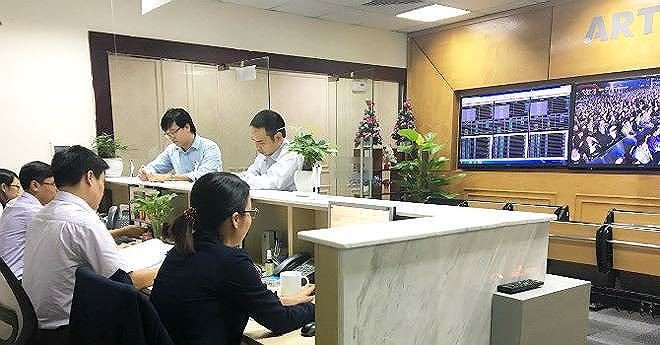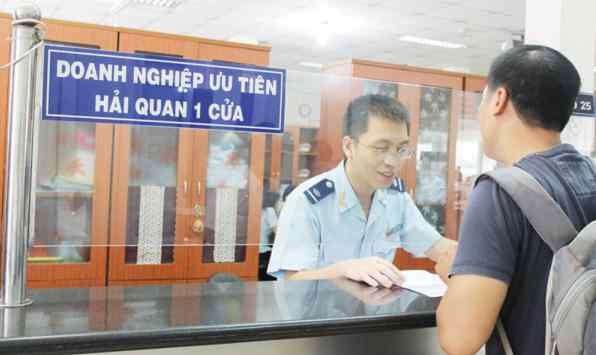Clause 23 Article 4 of the 2005 Intellectual Property Law, amended and supplemented in 2009 stipulates: “A business secret is information obtained from financial and intellectual investment, which has not been disclosed and is capable of used in business. This information is an intellectual product of an enterprise, is an extremely important factor affecting the business operation of a business. ”

Trade secrets are protected by default
Industrial property rights to business secrets are established on the basis of legally acquiring the business secret and exercising keeping such trade secret confidential.
This means that if the two conditions mentioned above are met, the trade secret is automatically protected and there is no need to go through registration with the competent authority.
Business secret conditions are protected
– When used in business, it will give the holder of the business secret advantage over someone who does not hold or use it;
– To be kept confidential by the owner by means of necessary measures so that the business secret is not disclosed and is not easily accessible.
– It is not common knowledge and is not easily obtained;
The object is not protected in the name of a trade secret
– Personal secrets;
State management secrets;
– National defense and security secrets;
– Other confidential information not related to business.
Owners of trade secrets
Business secret owner is an organization or individual that has legally obtained the business secret and practices keeping such business secret confidential.
In the case where the business secret that the employee or the party assigned to perform the assigned tasks obtain in the process of performing the hired or assigned work is owned by the lessee or assignee, except where the parties agree otherwise.
Use trade secrets
The use of a business secret means the conduct of the following acts:
– Applying the business secret to manufacture products, provide services, or trade in goods;
– Selling, advertising for sale, stockpiling for sale or importing products manufactured by applying the business secret.
Restricting rights to the owner of a business secret
The owner of a business secret has no right to prohibit others from performing the following acts:
– Disclosing and using the business secret obtained without knowing and having no obligation to know it illegally obtained by others;
– Disclosing confidential data for the purpose of protecting the public according to the provisions of Clause 1, Article 128 of the 2005 Intellectual Property Law;
– Using confidential data specified in Article 128 of the 2005 Intellectual Property Law for non-commercial purposes;
– Disclosing and using the business secret that has been independently created;
– Disclosing and using the trade secret created by analyzing and evaluating products which are legally distributed provided that the analyst or evaluator has no other agreement with the business secret owner or person. sell.
Infringing rights to business secrets
The following acts are considered as infringements of the rights to business secrets:
– To access and collect information of trade secrets by opposing the confidentiality measures of those who legally control the trade secret;
– Disclosing and using information of the business secret without the permission of the owner of that business secret;
– Breaching confidentiality contracts or defrauding, inducing, bribing, coercing, seducing, or taking advantage of the trust of a person with confidentiality obligations in order to access, collect or disclose business secrets;
– Accessing, collecting information on the business secrets of the applicant according to the business license application or product circulation by opposing the security measures of the competent authority;
– Using or disclosing the business secret even though it is known or obliged to know that it obtained by others in connection with one of the acts specified at Points a, b, c and d Clause 1, Article 127 of the 2005 Intellectual Property Law;
– Failure to perform the obligation of confidentiality specified in Article 128 of the 2005 Intellectual Property Law.
Business secret legal controllers include the business secret owner, the person legally licensed to use the business secret, and the business secret manager.
Protecting rights to business secrets
The owner of the right to a business secret has the right to take the following measures to protect his intellectual property:
– Apply technological measures to prevent infringements of intellectual property rights;
– To request organizations and individuals that commit acts of infringement of intellectual property rights to terminate the infringing acts, apologize, publicly rectify, compensate for damage;
– To request competent state agencies to handle acts of infringement of intellectual property rights according to the provisions of this Law and other relevant law provisions;
– To sue in court or arbitration to protect his legitimate rights and interests.
Prove the right holder
– In the event, the owner applies measures to sue in court or arbitration to protect his legitimate rights and interests.
– The owner must prove to be the owner of the compromised business secret when applying some of the above protection measures. To prove the right to a business secret, the owner must have the following evidence: a description of the content, the form of storage, the method of protection and the method of obtaining the business secret.
To sanction acts of infringing upon the rights to business secrets
– For acts of infringing upon the rights to business secrets, depending on the severity of the violation, the violator can be administratively sanctioned by warning or a fine with a maximum amount of 15,000,000. VND for individuals and 30,000,000 VND for organizations.
– Individuals who commit acts of infringing upon the rights to business secrets with criminal elements shall be examined for penal liability in accordance with the criminal law.
– The strategy to protect business secrets according to WIPO
The World Intellectual Property Organization (WIPO) has suggestions for businesses that own business secrets 10 basic protection strategies, including:
– Identifying trade secrets: businesses should consider when deciding to treat information as a trade secret. At that time, businesses will have to evaluate factors such as: disclosed scope of information; information security capabilities; the value of information to the business itself and to its competitors; difficulty for others to collect and access information …
– Develop protection policy: business secret protection policy must be transparent and clear; must be able to demonstrate that commitments of protection have important implications in the case of proceedings …
– Employee education: to limit unintentional disclosure of information; internal training of staff since the beginning of the awareness of information confidentiality; regularly remind, check for violations …
– Limited access: should disclose business secrets only to those who need to know that information; and restrict each employee’s access to the database of information that needs confidentiality …
– Document marking: building a unified document marking system and improving employee’s understanding to avoid unintentional disclosure of information.
– Physical isolation and protection: measures such as private key deposit can be implemented; access control; tear up the information; check and monitor regularly
– Isolation and protection of electronic data: such as access control; encryption, build firewall; monitoring checks of incoming and outgoing data …
– Restricting the public’s access to the facility: checking the access of guests; Conducting customer movement tracking in the company …
– For third parties: making confidentiality contracts, restricting access only to need to know …
– Voluntary supply: share by degree to exploit; restrict access of those provided; establish a security contract …
Business secret registration service of Hung Phuc Law:
Because this procedure does not require registration by law, Hung Phuc Law will assist clients in consulting and providing legal information related to the following issues:
– Legal provisions related to business secrets and protection of business secrets;
– Identifying the part protected in the name of a business secret;
– Advice on the rights of owners on business secrets;
– Consulting on methods of protecting confidential business information;
– Determining the acts considered an infringement of the right to business secrets;
– Representing customers to resolve disputes and complaints related to business secrets.
phapluatdoanhnghiep.vn
















